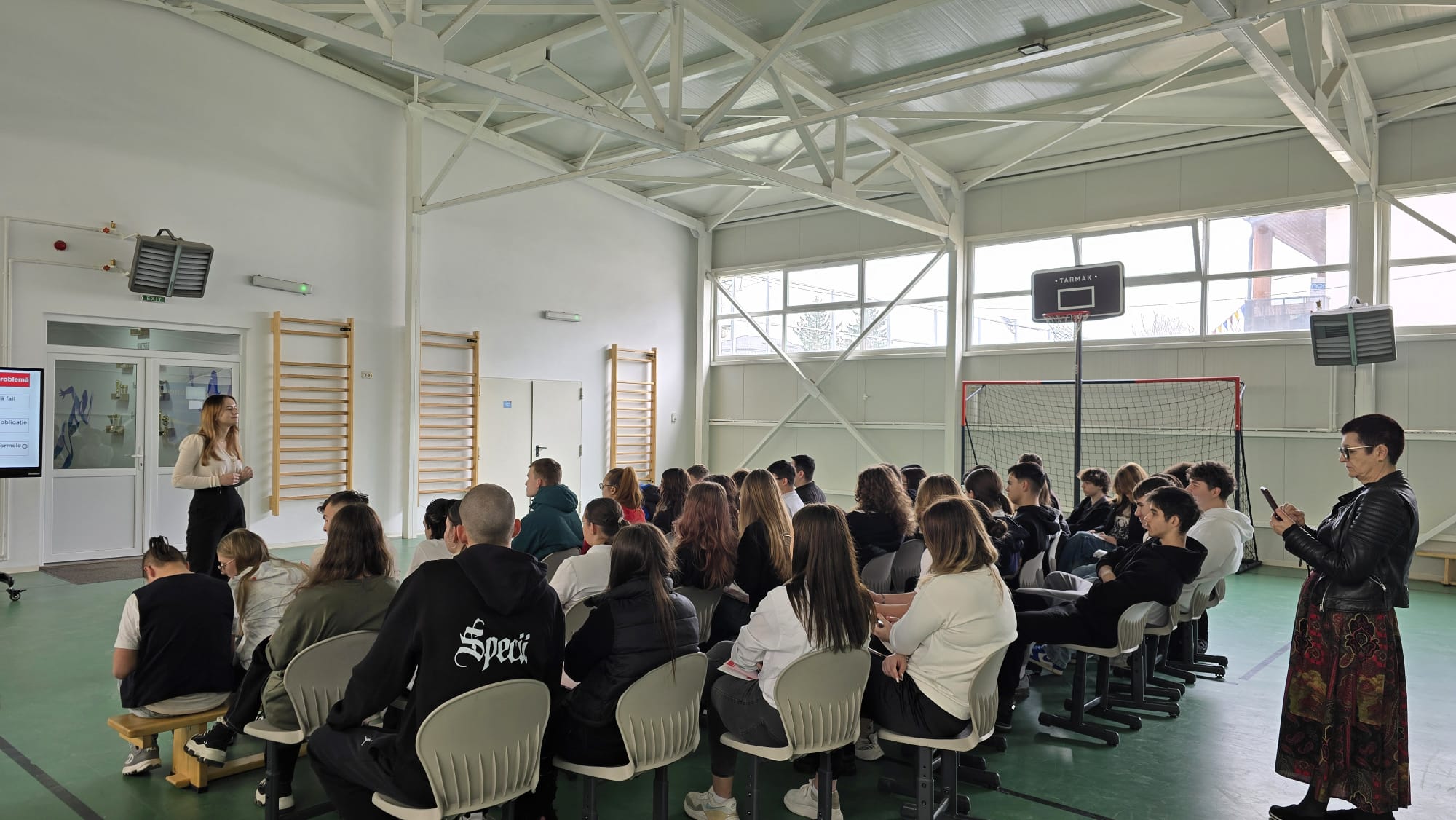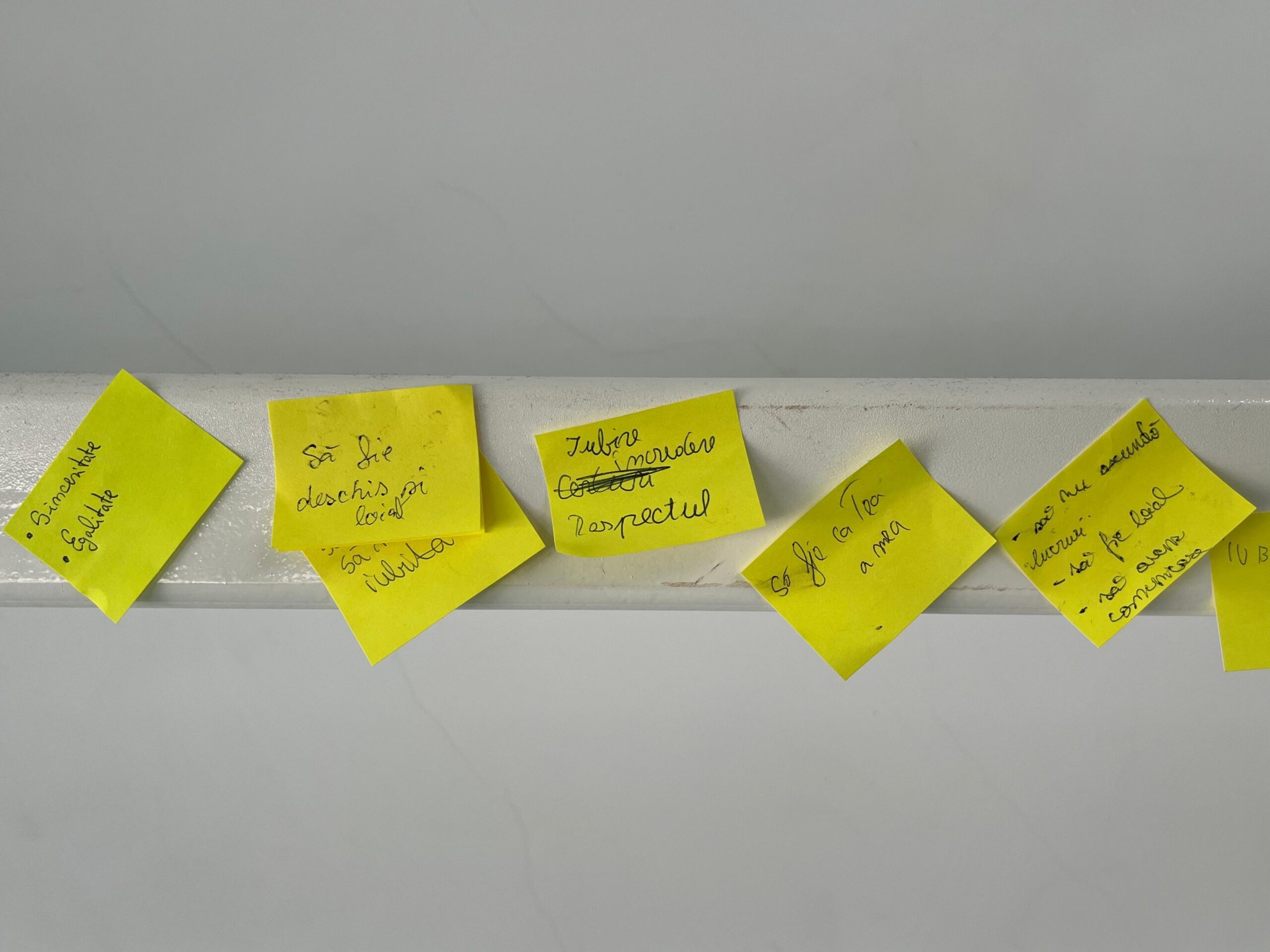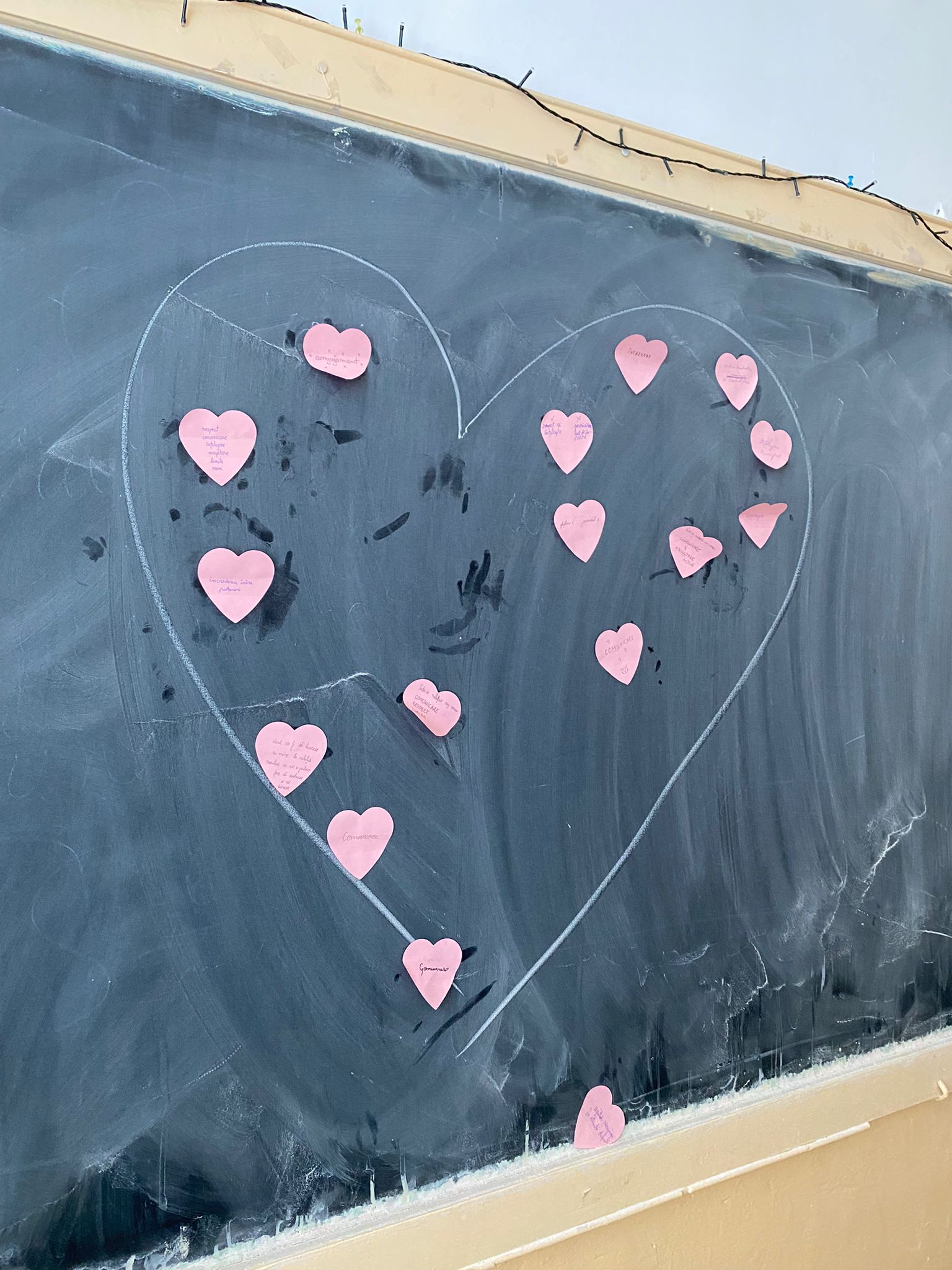A.L.E.G. x AVON – Prevention of gender violence
Responsible relationships in high schools in Romania
This spring, the A.L.E.G. Association, in partnership with AVON Space, launched an educational campaign aimed at teenage girls and boys from several high schools in Romania, entitled “Stay Connected, Love Responsibly”. Inspired by the month of love, marked by days with romantic significance such as Valentine’s Day and Dragobete, the campaign aimed to promote healthy relationships, mutual respect and open communication, with the aim of transforming these values into normality from the school benches.
A.L.E.G. trained 35 AVON leaders in the field of gender equality, combating stereotypes and preventing gender-based violence, providing them with the necessary tools to address these topics in dialogue with young people. These leaders reached over 15,000 high school students across the country.
A.L.E.G. directly supported sessions with over 1000 students from 7 high schools in Romania (in Bacău, Cugir, Cluj-Napoca, Sibiu, Iași and Vaslui), covering topics often not addressed in the formal educational setting: recognizing early signs of abuse, how to build healthy boundaries, consent, and the ingredients of a balanced relationship.
Many teenagers confessed that, until now, discussions about relationships only took place between friends, rarely, if ever, with a trusted adult. The A.L.E.G. x AVON workshops became a safe space for dialogue for them, where questions received honest, empathetic and non-judgmental answers. From “what role does jealousy play in a healthy relationship?” to “how can I distinguish between a joke and abuse?”, participants found clarity and real support.
What did teenagers say?
💬 “A relationship shouldn’t cancel us out as people. We need personal space.”
💬 “We learn about relationships from the internet, from friends, from parents (“but we talk to them less”), but also from the relationships we’ve already had, up until this age.”
💬 “Trust doesn’t come because we fall in love, it’s earned over time. We have to be patient to see if we can trust.”
💬 “The way we function in relationships also depends on the attachment we develop in the family, but also on how we see our parents relating to each other.”
💬 “Relationships make us more empathetic. We put ourselves in each other’s shoes and see life and people differently.”
💬 When there’s pressure, we don’t feel like we’re choosing.”
💬 “When we end a relationship we take time to be alone to think about what we want and don’t want anymore”, “we go out with friends”, “we think about what we did wrong and how we could do better in the future”, “we do the activities we like or discover new hobbies”.


The workshops were designed in an interactive way, combining games, questions and individual self-assessment exercises, through which young people learned to recognize acceptable, unacceptable, negotiable or non-negotiable behaviors in a relationship. Some shared examples from their own family or personal experience, while others, although more withdrawn at the beginning, managed to open up with courage along the way. In some classes, the enthusiasm and involvement were remarkable, while in others, the initial reservations highlighted how great the need for emotional education is among adolescents.
Each workshop was accompanied by moments of deep awareness. Sometimes, discussions continued during breaks, and at other times, teachers requested additional materials to explore the topics addressed in more detail or to display them in visible places. In some situations, we were impressed by the maturity and empathy of the adolescents, but we also realized the size of the huge challenges they face.
We have observed that in environments where adolescents feel accepted, supported by peers, where mutual respect and the courage to speak honestly prevail, discussions about healthy relationships develop deeply and meaningfully. In such contexts, young people have the opportunity to learn from each other what it means to support, encourage and balance in relationships. On the other hand, in classes where authentic connections, empathy and care for others are lacking, difficulties become more evident, and openness to dialogue decreases. It is precisely these contrasts that underline how essential it is not to give up, but to continue to build safe and open spaces for relational education, because the need is profound, and the effects – long-term.
This campaign not only educates, but also cultivates hope that every small step taken today will have a positive impact on the way young people will experience love and build relationships tomorrow.







